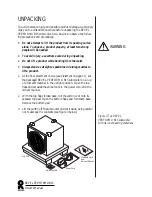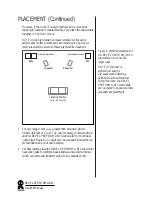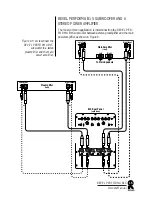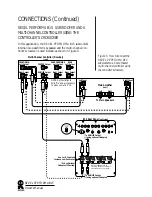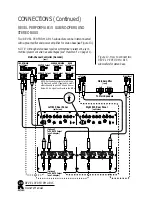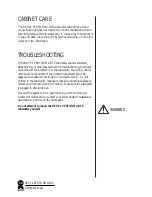
SYSTEM OPTIMIZATION
PLACEMENT OVERVIEW (Continued)
The REVEL LOW FREQUENCY OPTIMIZER provides a con-
venient way to save each set of measurements and to make notes so
that the effect of various locations can be compared.
Other sound measurement systems may also be used to help
determine speaker and listener locations, as long the selected
equipment provides at least
1⁄
10
-octave resolution at 20 Hz.
GENERAL PLACEMENT GUIDELINES
•
As a general rule, placing a subwoofer in the corner of a room
will result in the maximum number of “peaks” and minimum
number of “dips” in the response. Most dips cannot be equal-
ized, but they can be minimized through optimum placement
of subwoofer(s) and the listening position. The resulting peaks
can be corrected through the use of our powerful built-in para-
metric equalization.
•
If you plan to use more than one subwoofer, try placing them
both in one corner or use a modeling program or trial-and-
error measurements to determine locations that will further
minimize response dips due to standing wave cancellation.
•
Placing other system loudspeakers in the listening room will
also affect the way sound (below 300 Hz) is reproduced. Just as
is the case with subwoofers,use a modeling program or trial-
and-error measurements to determine the best locations
•
Since the listening and loudspeaker locations are equally impor-
tant, the trial-and-error process can be time-consuming.
However, the sonic rewards are great. Remember that peaks
(below the subwoofer crossover frequency) can be eliminated by
the proper adjustment of the REVEL PERFORMA B15 sub-
woofer EQ controls, but most dips cannot be corrected.
Therefore, the objective is to find the best locations that result
in the minimum number and severity of dips.
REVEL PERFORMA B15
Owner’s Manual
22

